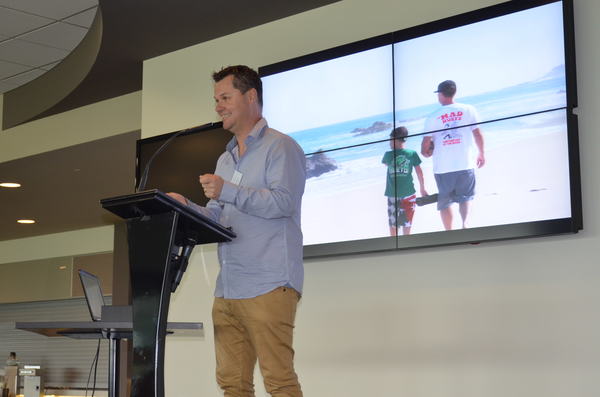By Casey Neill
PAUL Worsteling’s journey to fishing fame started with a desire to grow his Cranbourne business.
He now films 30 half-hour and 10 hour-long episodes of Channel 10 program iFish each year and spends up to 40 weeks a year filming around Australia and the world.
“It has done what I hoped it would do for my business,” he said.
“Tackle Word Cranbourne is now an international tourist destination.”
It’s the biggest tackle store in Melbourne and started as a 99-square metre shop that was part of a food store.
Paul said word of mouth couldn’t be beaten, and staff were any company’s greatest asset.
“I like to rule with a feather duster,” he said.
“We respect each other and get the best out of each other.”
His top business advice was “always strike while the iron is hot”.
“Don’t do tomorrow what you can do today,” he said.
Paul said the world was constantly changing, so business owners should always consider the future, and that “sharing is caring”.
He can connect with more than 23.3 million people around the world in moments using various social media platforms, asking whether he should go with steak or whiting for dinner.
“I can literally have 40,000 people tell me what to have for dinner,” he said.
“They’re real people doing real things.”
Paul found his love for fishing on his family farm in Cranbourne when his dad, Hans, put 500 fish into one of their dams.
“I went down there with a fishing pole because I just wanted to see what was under that water,” he said.
“I couldn’t physically see the fish unless I actually caught them.
“I became a fishing text book guru.”
At a Year 7 school camp he landed his first catch – four undersized flathead.
They weighed less than his sinker and he’d used such a heavy line it couldn’t reach the bottom.
“I had to put my rod under the water,” he laughed.
“They were the sweetest fish I’d ever eaten in my life.”
Paul and his family moved house and he continued making his own fishing lures and writing and reading about fishing.
A bloke with a boat moved in across the road.
“My BMX slowly gravitated towards his house,” he said.
Paul told the neighbour about his love for fishing and found himself in luck – and a short time later, on a boat.
“We’d fish three days a week – one night after school, all day Saturday, all day Sunday,” he said.
Then he turned 14 and Hans organised him a job at Kmart, in the gardening section.
“Every Friday night and Saturday while my neighbour was fishing I was watering plants,” he said.
Doling out fishing advice to a co-worker earned him a transfer to the sporting goods department, where he gravitated to the rods and reels.
Around the same time Paul joined Cranbourne Angling Club, met a guy who was planning to open a tackle shop and volunteered to help him set up.
“I didn’t get paid but I didn’t care,” he said.
Paul would work the morning shift at Kmart and ride his bike to the tackle shop for the afternoon.
He referred Kmart customers to the tackle store, earning him a nickname that’s stuck right up to today – The Kmart Kid.
Kmart got wind of it and called him into a meeting.
Paul resigned and started working at the tackle shop after school Thursdays and Fridays and all weekend.
While completing a four-year course in PE teaching at university, Paul worked at the tackle shop every chance he got.
He got a call from the boss at the start of a planned gap year.
“For about nine months prior I’d been dating his daughter,” Paul said.
“I thought I was in all sorts of trouble.”
To Paul’s surprise, he offered to sell him the tackle shop.
The banks were reluctant to lend the 22-year-old the money he needed, so his parents put their house up as collateral.
He bought the business on 9 September 1996 and wanted to “have the best tackle store in the universe”.
He focused on branding and customer service and started to grow sales within four days.
After four years he was looking to relocate but needed backing – a superstar.
His idea was “if I can become someone in fishing, if I can become someone people respect, they will come”.
He hooked an Australian record-breaking 600-pound mako shark off Phillip Island and Hans told him to write down every detail, to capture the experience.
He did, and sent it to a fishing magazine.
“That was my first fishing article,” he said.
Soon he was on Casey radio and phoning in fishing reports to Rex Hunt on 3AW.
Paul also sent Rex regular faxes with fishing tips and in 2000 received a phone call for help from the man himself.
Paul organised a trip for Rex for his Fishing Adventures television program and got invited to tag along.
It was the start of a four-year stint on the show.
“It definitely brought people into my business,” he said.
The show came to an end and Paul got the opportunity to make his own.
His personalised licence plate inspired the title – iFish.
Paul grew his childhood hobby into a career spanning radio, television, books and two tackle shops.
“Fishing is not about fish. Fishing is about places and faces,” he said.







